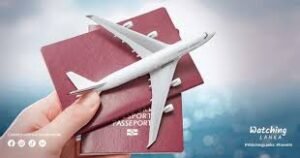Sri Lanka, a beautiful island nation in the Indian Ocean, has become an increasingly popular destination for both tourism and business. Whether you’re planning to explore the lush landscapes and cultural heritage or looking to expand your business in the region, understanding the visa requirements is essential. This article will explore the process of obtaining a Sri Lankan visa and a Sri Lanka business visa, shedding light on the key aspects and providing useful information for prospective travelers and entrepreneurs.
1. Understanding the Sri Lankan Visa
A Sri Lankan visa is required for all foreign nationals who wish to visit the country. The type of visa you need depends on the purpose of your visit. The most common visa is the tourist visa, which can be obtained online through the Sri Lanka Electronic Travel Authorization (ETA) system. Visitors must fill out an online application form, providing personal details, travel information, and the purpose of the trip.
The Sri Lankan visa for tourism typically allows stays of up to 30 days, with the option to extend for an additional 60 days. If you’re planning a short visit to Sri Lanka, this option is the most convenient. For longer stays or multiple visits, other visa categories, like the transit visa or a resident visa, may be more suitable.
2. Application Process for a Sri Lanka Business Visa
A Sri Lanka business visa is specifically designed for individuals traveling to Sri Lanka for business-related activities, such as attending meetings, conferences, or setting up a business. Unlike the tourist visa, the Sri Lanka business visa typically requires more documentation and approval.
To apply for a Sri Lanka business visa, you’ll need to provide an invitation letter from a registered business or company in Sri Lanka. This letter should outline the purpose of your visit, the duration of your stay, and any financial arrangements. In addition, you may need to show proof of your financial stability, such as bank statements or a letter from your employer.
The business visa is usually granted for a period ranging from 30 days to 90 days. Extensions can be applied for if you plan to stay longer. Make sure to check the specific requirements for your situation, as the application process can vary depending on your country of origin and the type of business activity you’re undertaking.
3. Key Considerations for a Smooth Visa Process
While applying for a Sri Lankan visa or Sri Lanka business visa, there are a few important points to keep in mind to ensure a smooth process. First, ensure that your passport is valid for at least six months beyond your planned departure date from Sri Lanka. Any inconsistencies or issues with your passport could result in delays or rejection of your visa application.
Second, double-check the information on your visa application form, as any errors can cause delays in processing. It’s also essential to pay attention to the visa validity period and the permitted duration of stay, as overstaying your visa can lead to fines or deportation.
For those applying for a Sri Lanka business visa, it’s crucial to follow the guidelines set by the Sri Lankan authorities carefully. The business visa process can be more intricate, and providing all the necessary documentation upfront will help avoid delays. Additionally, some business visa applicants may be required to submit additional documents, such as a company registration certificate or financial records.
4. Extension and Renewal Options
In case you wish to extend your stay in Sri Lanka, both Sri Lankan visas and Sri Lanka business visas offer extension options. For a tourist visa, you can apply for an extension at the Department of Immigration and Emigration in Sri Lanka. Extensions are usually granted for a further 60 days, although they are not guaranteed.
For a Sri Lanka business visa, you may be able to extend your visa by providing additional documentation to support the need for an extended stay. Business visa holders should reach out to the relevant Sri Lankan authorities before the expiry of their visa to avoid any legal complications. Extensions are typically easier to obtain for those actively involved in business activities.
Conclusion
Obtaining a Sri Lankan visa or Sri Lanka business visa is a relatively straightforward process, but it requires attention to detail and timely application. For tourism, the Sri Lankan visa offers flexibility and convenience through the electronic application system. On the other hand, the Sri Lanka business visa is an essential requirement for anyone looking to engage in professional activities in Sri Lanka, with a slightly more involved application process. To ensure a smooth entry and stay, always ensure that you meet all the visa requirements and keep track of your visa’s validity. With the proper preparations, your trip to Sri Lanka, whether for leisure or business, will be an enriching and seamless experience.




Average Rating